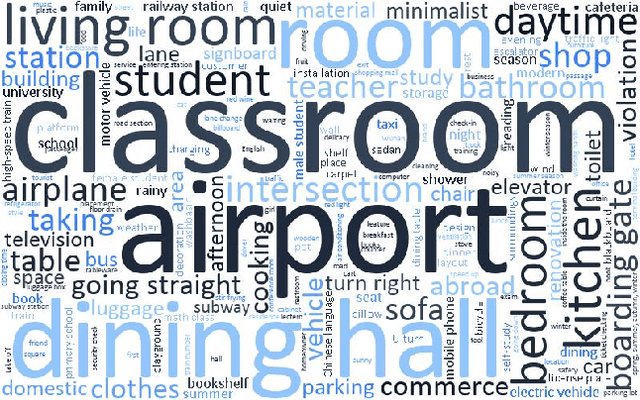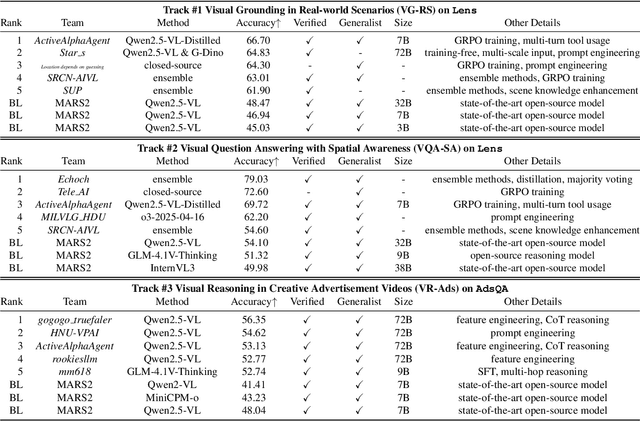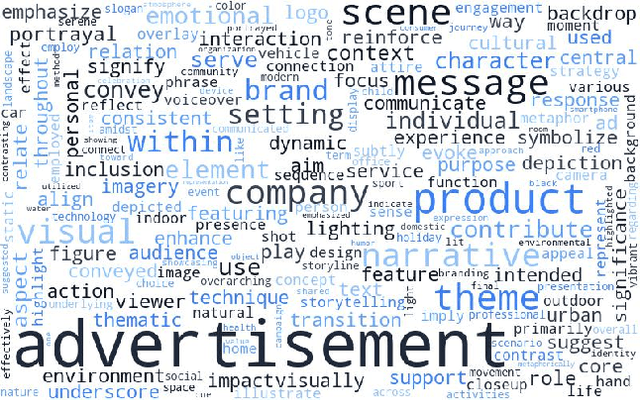Yiqing Wang
Being-H0.5: Scaling Human-Centric Robot Learning for Cross-Embodiment Generalization
Jan 19, 2026Abstract:We introduce Being-H0.5, a foundational Vision-Language-Action (VLA) model designed for robust cross-embodiment generalization across diverse robotic platforms. While existing VLAs often struggle with morphological heterogeneity and data scarcity, we propose a human-centric learning paradigm that treats human interaction traces as a universal "mother tongue" for physical interaction. To support this, we present UniHand-2.0, the largest embodied pre-training recipe to date, comprising over 35,000 hours of multimodal data across 30 distinct robotic embodiments. Our approach introduces a Unified Action Space that maps heterogeneous robot controls into semantically aligned slots, enabling low-resource robots to bootstrap skills from human data and high-resource platforms. Built upon this human-centric foundation, we design a unified sequential modeling and multi-task pre-training paradigm to bridge human demonstrations and robotic execution. Architecturally, Being-H0.5 utilizes a Mixture-of-Transformers design featuring a novel Mixture-of-Flow (MoF) framework to decouple shared motor primitives from specialized embodiment-specific experts. Finally, to make cross-embodiment policies stable in the real world, we introduce Manifold-Preserving Gating for robustness under sensory shift and Universal Async Chunking to universalize chunked control across embodiments with different latency and control profiles. We empirically demonstrate that Being-H0.5 achieves state-of-the-art results on simulated benchmarks, such as LIBERO (98.9%) and RoboCasa (53.9%), while also exhibiting strong cross-embodiment capabilities on five robotic platforms.
MARS2 2025 Challenge on Multimodal Reasoning: Datasets, Methods, Results, Discussion, and Outlook
Sep 17, 2025



Abstract:This paper reviews the MARS2 2025 Challenge on Multimodal Reasoning. We aim to bring together different approaches in multimodal machine learning and LLMs via a large benchmark. We hope it better allows researchers to follow the state-of-the-art in this very dynamic area. Meanwhile, a growing number of testbeds have boosted the evolution of general-purpose large language models. Thus, this year's MARS2 focuses on real-world and specialized scenarios to broaden the multimodal reasoning applications of MLLMs. Our organizing team released two tailored datasets Lens and AdsQA as test sets, which support general reasoning in 12 daily scenarios and domain-specific reasoning in advertisement videos, respectively. We evaluated 40+ baselines that include both generalist MLLMs and task-specific models, and opened up three competition tracks, i.e., Visual Grounding in Real-world Scenarios (VG-RS), Visual Question Answering with Spatial Awareness (VQA-SA), and Visual Reasoning in Creative Advertisement Videos (VR-Ads). Finally, 76 teams from the renowned academic and industrial institutions have registered and 40+ valid submissions (out of 1200+) have been included in our ranking lists. Our datasets, code sets (40+ baselines and 15+ participants' methods), and rankings are publicly available on the MARS2 workshop website and our GitHub organization page https://github.com/mars2workshop/, where our updates and announcements of upcoming events will be continuously provided.
ContextRefine-CLIP for EPIC-KITCHENS-100 Multi-Instance Retrieval Challenge 2025
Jun 12, 2025Abstract:This report presents ContextRefine-CLIP (CR-CLIP), an efficient model for visual-textual multi-instance retrieval tasks. The approach is based on the dual-encoder AVION, on which we introduce a cross-modal attention flow module to achieve bidirectional dynamic interaction and refinement between visual and textual features to generate more context-aware joint representations. For soft-label relevance matrices provided in tasks such as EPIC-KITCHENS-100, CR-CLIP can work with Symmetric Multi-Similarity Loss to achieve more accurate semantic alignment and optimization using the refined features. Without using ensemble learning, the CR-CLIP model achieves 66.78mAP and 82.08nDCG on the EPIC-KITCHENS-100 public leaderboard, which significantly outperforms the baseline model and fully validates its effectiveness in cross-modal retrieval. The code will be released open-source on https://github.com/delCayr/ContextRefine-Clip
SwinMM: Masked Multi-view with Swin Transformers for 3D Medical Image Segmentation
Jul 24, 2023



Abstract:Recent advancements in large-scale Vision Transformers have made significant strides in improving pre-trained models for medical image segmentation. However, these methods face a notable challenge in acquiring a substantial amount of pre-training data, particularly within the medical field. To address this limitation, we present Masked Multi-view with Swin Transformers (SwinMM), a novel multi-view pipeline for enabling accurate and data-efficient self-supervised medical image analysis. Our strategy harnesses the potential of multi-view information by incorporating two principal components. In the pre-training phase, we deploy a masked multi-view encoder devised to concurrently train masked multi-view observations through a range of diverse proxy tasks. These tasks span image reconstruction, rotation, contrastive learning, and a novel task that employs a mutual learning paradigm. This new task capitalizes on the consistency between predictions from various perspectives, enabling the extraction of hidden multi-view information from 3D medical data. In the fine-tuning stage, a cross-view decoder is developed to aggregate the multi-view information through a cross-attention block. Compared with the previous state-of-the-art self-supervised learning method Swin UNETR, SwinMM demonstrates a notable advantage on several medical image segmentation tasks. It allows for a smooth integration of multi-view information, significantly boosting both the accuracy and data-efficiency of the model. Code and models are available at https://github.com/UCSC-VLAA/SwinMM/.
Neural Auction: End-to-End Learning of Auction Mechanisms for E-Commerce Advertising
Jun 07, 2021Abstract:In e-commerce advertising, it is crucial to jointly consider various performance metrics, e.g., user experience, advertiser utility, and platform revenue. Traditional auction mechanisms, such as GSP and VCG auctions, can be suboptimal due to their fixed allocation rules to optimize a single performance metric (e.g., revenue or social welfare). Recently, data-driven auctions, learned directly from auction outcomes to optimize multiple performance metrics, have attracted increasing research interests. However, the procedure of auction mechanisms involves various discrete calculation operations, making it challenging to be compatible with continuous optimization pipelines in machine learning. In this paper, we design \underline{D}eep \underline{N}eural \underline{A}uctions (DNAs) to enable end-to-end auction learning by proposing a differentiable model to relax the discrete sorting operation, a key component in auctions. We optimize the performance metrics by developing deep models to efficiently extract contexts from auctions, providing rich features for auction design. We further integrate the game theoretical conditions within the model design, to guarantee the stability of the auctions. DNAs have been successfully deployed in the e-commerce advertising system at Taobao. Experimental evaluation results on both large-scale data set as well as online A/B test demonstrated that DNAs significantly outperformed other mechanisms widely adopted in industry.
 Add to Chrome
Add to Chrome Add to Firefox
Add to Firefox Add to Edge
Add to Edge